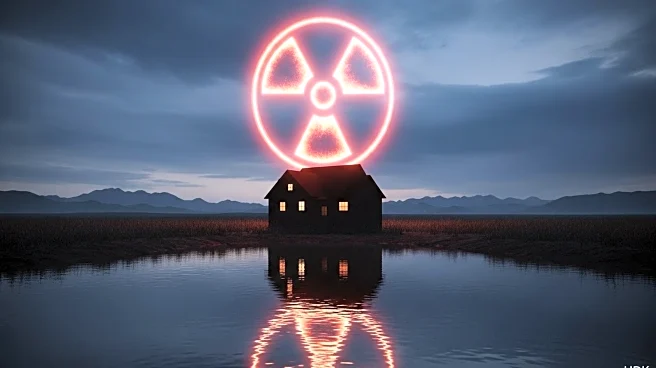What is the story about?
What's Happening?
Oscar-winning director Kathryn Bigelow has released a new thriller titled 'A House of Dynamite,' which delves into the potential consequences of a nuclear missile launch towards the United States. The film, co-written with screenwriter Noah Oppenheim, examines the human elements and decision-making processes within the government and military in response to such a crisis. Bigelow, known for her previous works 'The Hurt Locker' and 'Zero Dark Thirty,' continues to explore themes of national security and the psychological impacts of warfare. The narrative aims to highlight the fragility and complexity of America's nuclear deterrence strategy.
Why It's Important?
The film 'A House of Dynamite' is significant as it brings attention to the ongoing concerns surrounding nuclear security and deterrence. By dramatizing the potential real-world implications of a nuclear threat, it encourages public discourse on the effectiveness and reliability of current defense strategies. The film may influence policymakers and the public to reconsider the preparedness and ethical considerations of nuclear warfare. Additionally, it underscores the importance of understanding the human factors involved in high-stakes decision-making, which can have profound impacts on national and global security.
What's Next?
Following the release of 'A House of Dynamite,' there may be increased discussions among political leaders, defense experts, and civil society groups regarding the current state of nuclear deterrence and security policies. The film could prompt calls for reviews or updates to existing protocols and strategies to ensure they are robust against modern threats. Furthermore, it may inspire other filmmakers and artists to explore similar themes, contributing to a broader cultural examination of nuclear issues.
Beyond the Headlines
Beyond its immediate impact, 'A House of Dynamite' could lead to a deeper exploration of the ethical and psychological dimensions of nuclear deterrence. The film raises questions about the moral responsibilities of those in power and the potential consequences of their decisions. It may also contribute to a long-term shift in public perception, fostering a more informed and engaged citizenry regarding nuclear policies and their implications.















